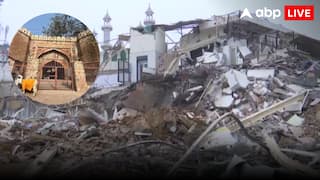Sri Lanka Inks Pact With IOC To Lease Oil Tanks Amid Economic Crisis
Lanka IOC, local unit of Indian Oil, will have 14 tanks on a 50-year lease, the new deal said

New Delhi: Sri Lanka has inked a deal with Lanka IOC, local arm of Indian Oil Corporation (IOC), to lease out 75 oil tanks, as the country is inching closer to securing a $500 million fuel credit line from India, according to a report in Reuters.
The pact comes just ahead of Chinese Foreign Minister Wang Yi’s visit to Colombo this weekend as China is also vying for clout in the island nation.
Sri Lanka’s economic crises are deepening on each and every passing day. The country is facing its worst financial crises in decades, with its foreign exchange reserves dwindling and around $4.5 billion worth of debt repayments due in 2022, prompting it to look at other ways to bring in foreign exchange.
With inflation record high, food prices skyrocketing, and its coffers running dry, the country is staring at a ‘humanitarian crisis’. The country’s economy contracted by 1.5 per cent in the third quarter of 2021, the Census and Statistics Department said last month.
Sri Lanka had earlier agreed to lease all of its 99 tank oil farms to India in 2003.
According to the new deal, Lanka IOC will have 14 tanks on a 50-year lease, while its joint venture with state-run Ceylon Petroleum Corporation (CPC), the Trinco Petroleum Terminal, will develop 61 oil farms. CPC will use the remaining 24 tanks.
“This agreement will nulify the lease agreement entered into by the two countries in 2003 and bring the tank farm under a new governance structure,” Sri Lanka’s Energy Ministry said in a statement on Thursday.
Before Thursday’s agreement Lanka IOC was operating 15 of the 99 storage tanks in the eastern port of Trincomalee, a strategically important harbour off the Sri Lanka’s east coast.
The Sri Lankan government had been considering developing the rest to increase its fuel storage capacity.
Prime Minister Narendra Modi during a visit to Sri Lanka in 2019 said the project could help the island become a regional petroleum hub.
According to estimates of World Bank, around 5 lakh people in Sri Lanka have fallen below the poverty line since the pandemic struck the nation which the World Bank in its report described as a huge setback equivalent to five years’ worth of progress.
Ratings agency Fitch also downgraded Sri Lanka last month over apprehensions of a sovereign default on its $26 billion foreign debt, a report by AFP said.
Since 1987, successive Indian and Sri Lankan governments have been attempting to divide up ownership and development of the World War II era tank farm at Trincomalee.
Sri Lanka is located on a shipping channel between Gulf oil exporters and Asian consumers, and Trincomalee port served as a crucial Allied supply hub during the Second World War.





































